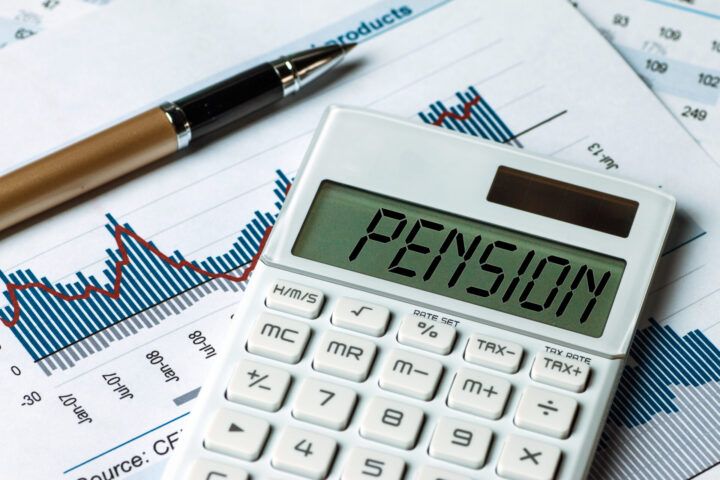The Government has confirmed that everyone over the state pension age in England and Wales earning £35,000 a year or less will receive the winter fuel payment this winter.
The higher threshold means over three quarters (nine million) of pensioners in England and Wales will get the payment, with support targeted at those on lower and middle incomes.
The payment will be £200 per household, or £300 where someone is over 80, and paid automatically.
Pensioners with incomes above £35,000 will have the payment automatically recovered by HMRC, either through PAYE or self-assessment, or they can choose to opt out.
The Government said it will cost around £1.25bn in England and Wales, with means-testing saving around £450m compared to universal payments.
Chancellor Rachel Reeves said: “Targeting Winter Fuel Payments was a tough decision, but the right decision because of the inheritance we had been left by the previous government.
“It is also right that we continue to means-test this payment so that it is targeted and fair, rather than restoring eligibility to everyone including the wealthiest.
“But we have now acted to expand the eligibility of the Winter Fuel Payment so no pensioner on a lower income will miss out.”
Reeves added: “This will mean over three quarters of pensioners receiving the payment in England and Wales later this winter.”
REACTION:
Alex Clegg, economist at the Resolution Foundation:
“The new scheme for means-testing Winter Fuel Payments means that that the number of pensioners receiving support will rise from 1.3 million last winter to around 9 million this winter, and not far off the 11.6 million who received Winter Fuel Payments two winters ago when they were universal.
“But this U-turn doesn’t represent a return to the status quo. The new means-test will create new complexity in the tax system, including a cliff-edge for those with around £35,000 of income.
“The reported savings of £450 million will be reduced further by the cost of increased pension credit take-up as a result of the original policy, and the cost of administering the new means-test.
“The real question is why it is now a priority to pay Winter Fuel Payments to over three quarters of pensioners, with almost half of the new beneficiaries in the richest half of the population, when previously it was judged that only one-in-ten needed support.”
Caroline Abrahams, charity director at Age UK:
“The Government’s Winter Fuel Payment announcement makes this a good day for older people.
“The decision to restore the Winter Fuel Payment to 9 million pensioners – all but those on the highest incomes who should be able to pay their heating bills without it – is the right thing to do and something that will bring some much-needed reassurance for older people and their families.
“At Age UK we heard from many through the winter who were so frightened about their bills that they didn’t even try to keep their homes adequately warm.
“We have always said what really matters is that the estimated 2.5 million older people who lost their Winter Fuel Payment when they couldn’t afford it get the money back, by one means or another.
“These 2.5 million comprise older people entitled to Pension Credit but not claiming it; those whose small incomes take them just above the line; and a third group who face extremely high bills because of severe ill health or disability.
“This new policy will help all these people by restoring their Winter Fuel Payment and we welcome it as a result.
“Of course, we would much have preferred it had the Government taken this approach last summer but we are pleased it means that older people can look ahead to the coming winter with more confidence. This will be a huge relief to many of them and to us at Age UK too.
“There’s certainly a lot more for us to do as a country to tackle the scourge of fuel poverty, something that impacts people of all ages, including too many families with children and disabled people of working age, among others, but today rights a wrong and marks a start. We hope the Government will build on it.
“We would like to express our gratitude to the hundreds of thousands of people who signed petitions, wrote to their MPs and took other action to encourage the Government to change course. You spoke, they listened.”
Sarah Coles, head of personal finance at Hargreaves Lansdown:
“Over three quarters of state pensioners will now get the winter fuel payment this winter, after the government decided to expand eligibility again. It may well be hoping that this encourages older voters to warm to them as the winter sets in.
The partial U-turn on the winter fuel payment will make a huge difference to the finances of some of the lowest earning pensioners, who had missed out by a hair’s breadth by earning fractionally too much to qualify for Pension Credit.
“They will now be able to budget for a warmer winter and a less painful squeeze on their finances as the cold nights draw in.
“They’ll also be getting a warm glow from the fact they may have a couple of small cuts in the energy price cap to look forward to between now and then, which should make for a more comfortable winter all round.”
Jon Greer, head of retirement policy at Quilter:
“This U-turn underlines how politically and practically difficult it is to unpick long-standing universal benefits like the winter fuel payment.
“While restricting payments to those on pension credit may have appeared fiscally responsible, it underestimated both the administrative burden and the strength of feeling such changes provoke among pensioners.
“The government has now accepted that removing support, even for retirees with more wealth, is far more complex in practice than in theory.
“Our research with 5,000 UK retirees shows just how sensitive this area is. The average retiree spends £22,140 per year. Of this, £1,806.19 is on energy costs – just under 10%. Similarly, it found that more than a third (35%) of pensioners expressed concern that benefits such as free bus passes and prescriptions could be next in line to be cut.
“This speaks to a broader unease about the potential erosion of longstanding benefits, particularly in the face of rising living costs.
“At the same time, our FOI data revealed that pension credit applications were taking up to 87 working days to process earlier this year. That’s a stark reminder that policy shifts of this nature don’t happen in a vacuum and can place real strain on government systems and create long waits for vulnerable people who urgently need support.
“The lesson here is that if government wants to better target support, it must do so with careful planning, adequate resourcing and a clear communication strategy.
“Hopefully, lessons have been learned as its understood that HMRC will work closely with representative bodies to ensure the new process is as simple as possible with clear guidance for taxpayers. The risks of getting it wrong are not just political and directly impact people’s lives.
“It also throws into sharp relief the growing tension around the state pension triple lock. There is a strong case to say the triple lock is no longer fit for purpose, yet this episode has shown just how radioactive any attempt at reform has become.
“No political party will want to touch it in the near future, particularly after seeing the speed and scale of the backlash to what was ultimately a more modest policy shift.”
Rachel Vahey, head of public policy at AJ Bell:
“After 11 months, the government has finally bowed under political pressure to U-turn on its controversial policy to deprive millions of pensioners of their Winter Fuel Payments.
“But the route it has chosen is the most convoluted and difficult. It will pay out the benefit to every pensioner but then claim it back from 25% of them – those with an income of more than £35,0000 – through a tax adjustment.
“This not only creates tax chaos for over a million people but it creates a cottage industry for government to impose the clawback, creating additional admin which will cut into the estimated £450 million saving to taxpayers.
“The government originally hoped to save around £1.4 billion by restricting Winter Fuel to Pension Credit recipients only (see table), a measure it said was required in order to repair public finances.
“Some of that was always likely to be offset by the drive to ensure people claimed Pension Credit and, with a 58,800 increase in successful claims since the chancellor’s initial Winter Fuel announcement, the net saving from the whole exercise is likely to be miniscule.
“This farcical situation could lead to pensioner panic. Many will be scrabbling to make sure their income dips under the critical £35,000 limit.
“Given the chaos it could cause and the relatively tiny taxpayer savings on offer, it may have made sense for the government to take the political embarrassment of a U-turn on the chin and make the payment to all pensioners.”

















